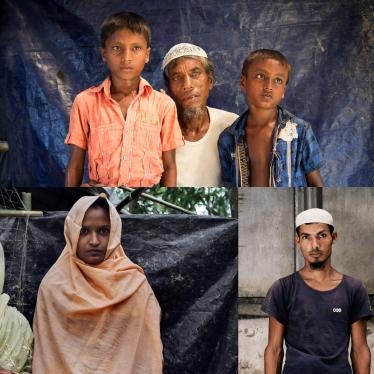(New York) - The acquittal of five Indonesian officials implicated in the 1999 massacre of civilians in an East Timor church underscores the need for a United Nations mechanism to bring to justice those responsible for atrocities in East Timor, Human Rights Watch said today.
Last week, the Supreme Court upheld the August 2002 decision by Indonesia's ad hoc court on East Timor to acquit the five defendants. The five were accused of involvement in the September 6, 1999, Suai church massacre, during which up to 200 civilians, including three priests, were killed.
"The Indonesian judicial system has failed to prosecute the East Timor cases seriously, and now the highest court in the land has applied the final coat of whitewash," said Brad Adams, executive director of Human Rights Watch's Asia Division. "Victims and family members still await justice for this massacre."
The five defendants were Indonesian military officers Lieutenant Colonel Liliek Kusardiyanto, Captain Ahmad Syamsudin, and Lieutenant Sugito; a police official, Colonel Gatot Subiaktoro, and a district head, Herman Sedyono. The five were also among 16 men named in an April 2, 2003, indictment filed by the U.N Serious Crimes Unit located in Dili, East Timor.
The U.N. indictment comprises 27 counts of crimes against humanity-including murder, extermination, enforced disappearance, torture and deportations. The charges relate to crimes committed in the Covalima District of East Timor, including the Suai church massacre perpetrated by the Laksaur militia along with members of the Indonesian Armed Forces, Indonesian Police, and Indonesia's Mobile Police Brigades.
The Indonesian government has vowed not to extradite anyone to the U.N.-backed courts in Dili. Therefore, the Indonesian Supreme Court decision effectively ensures that there will be no judicial accounting of the massacre in Indonesia. The Jakarta ad hoc court on East Timor has tried 18 men, 12 of whom have been acquitted. The six convicted defendants received only modest or nominal sentences, and none have served a day in prison.
"Indonesia should be embarrassed at its failure to successfully prosecute one of the worst crimes in a catalogue of atrocities while at the same time the U.N.-backed court in Dili is pursuing prosecutions against the same men," Adams said. "The Indonesian Supreme Court's decision underscores how the international community needs to ensure a credible mechanism to bring justice for crimes committed in East Timor."
Human Rights Watch called on U.N. Secretary-General Kofi Annan to commission a group of experts to examine all options for justice for crimes committed in East Timor, Human Rights Watch said. The commission should examine the failure of the ad hoc court in Jakarta and recommend means of solving those problems, and it should suggest means of extradition and trials of key suspects. It should also consider ways to strengthen the capacity of East Timor's Serious Crimes Unit to continue its investigations and prosecutions, and discuss the creation of an ad hoc international tribunal.
In September 1999 the Indonesian Armed Forces and Timorese militias embarked on a campaign of murder, arson, and forced expulsion after the people of East Timor voted for independence in a U.N.-administered referendum. After a quarter century of brutal occupation, an estimated 1,000 to 2,000 East Timorese civilians were killed in the months before-and days immediately after-the vote in 1999. Approximately 500,000 people were forced from their homes or fled to seek refuge.
Human Rights Watch has long maintained that Indonesia has failed in its efforts to bring to justice high-ranking perpetrators of crimes committed in East Timor. For details, please see "Justice Denied for East Timor: Indonesia's Sham Prosecutions, the Need to Strengthen the Trial Process in East Timor, and the Imperative of U.N. Action."






